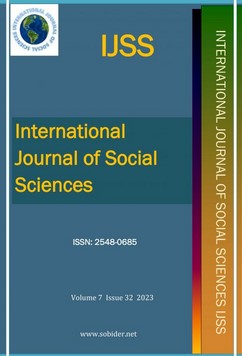Eğitim Felsefesinde Vatandaşlık Düşüncesini Temellendiren Hukuksal Düzlemin İncelenmesi
Examination of the Legal Plane that Bases the Idea of Citizenship in the Philosophy of Education
Author(s): Ümit Karaağaç, Oğuz Arıkan, Muzaffer Aydın, Ebru Ç. Karaağaç, Tezcan KızılaySubject(s): Political Philosophy, Philosophy of Law, Philosophy of Education
Published by: SD Yayınevi
Keywords: Philosophy of Education; Citizenship Thought; Legal Plane; Social Rights;
Summary/Abstract: In this study, it is aimed to examine the legal plane that bases the idea of citizenship in the philosophy of education. In the context of educational philosophy, the issue of Decadence, which appears in opposition to the concept of order within the framework of citizenship thought, is among the most prominent fears as one of the components that are at the heart of Western political philosophy. Political thinkers have resorted to some methods to prevent human life from being dragged into chaos by grappling with the problem of order in a long-term period that has continued from theories related to the social contract in the seventeenth century to today. The rule of law is a constitutional principle that seems to be valued to the extent of sanctity wherever it is in countries governed by the principles of democracy. The main component of this is the principle that the understanding of law should be in the administration; the citizen is included in the understanding of the rule of law, and no person and public personnel can remain outside of it. The understanding of the rule of law has a long-term history in a principled sense, and this understanding stems from libertarian legal theories. In this sense, social scientists have maintained this understanding in the linearity that has come down to our day. In its original sense, the term right refers to the power and power as it is in the divine rights of nobility, clergy and, of course, kings. Together with this, the term is used in modern times in the sense of the right and authority to be subject to reciprocity and to be able to perform acts in an appropriate manner. Although it does not seem possible to state that there is a global acceptance of the idea of rights, many contemporary political thinkers have not found any problem in stating their idea in terms of the concept of rights and authority. In this context, rights, Decencies and social justice have been among the issues that need to be discussed less than other political terms. However, there is less consensus on the basis on which rights are based and who should have what kind of rights.
Journal: Uluslararası Sosyal Bilimler Dergisi
- Issue Year: 7/2023
- Issue No: 31
- Page Range: 264-277
- Page Count: 14
- Language: Turkish

